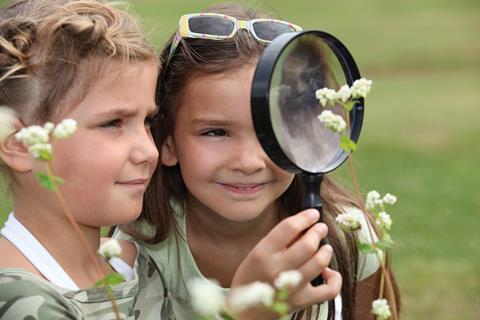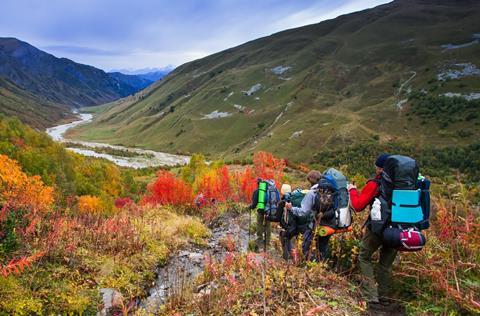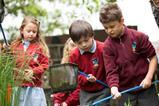Kim Somerville, chief executive of the Council for Learning Outside the Classroom, reflects on some of the School Travel Award finalist schools who embrace every opportunity within their school trips and residential experiences to get the best possible learning and life experiences for their children.

I write this column hot off the heels of the School Travel Awards ceremony (organised by School Travel Organiser magazine). It was a great opportunity to meet the schools, venues and individuals who bring learning to life to thousands of children and young people.
For the first time this year, I had the honour of being a judge on the panel for ‘My Best School Trip Award’, selecting a winner was an incredibly tough call. What I was most struck by was the extent to which the finalists were maximising every little bit of opportunity to develop relationships, wellbeing, confidence and engagement with learning from the trips.
Incredible finalist, Nelson Mandela School, Birmingham took a Year 5 trip to Dovedale in Derbyshire for the main reason of studying a river topic. But their teacher Kevin Jones squeezed so much more out of the trip than this. He encouraged children to look at road maps before and during the journey and they observed how the land changes as they leave the city and move into the countryside. Back at school Kevin used the trip to create roleplay situations where the children were told that a housing company want to build a new housing estate near the quiet hamlet. In groups the children argued for and against the development in a range of roles, including the new housing company and a current resident.
Another fascinating finalist, Lyndurst Primary School, London went to York with their Year 4 children on a residential experience at YHA as part of their topic unit on the Vikings. But, long before their trip to York, Helena Savvides was encouraging the children to develop their fundraising skills through taking part in initiatives such as bake sales and whole school Pancake Day which contributed to reducing the price of the residential by 60%.
Award winner, Moorside Primary School in Lancaster, with their resilience-building Year 1 winter residential to FSC Malham Tarn are an exceptional example of making the very most of every opportunity for the children within a residential trip. Whilst the trip was designed to enhance the Year 1’s topic unit ‘winter’ Jonathan Whitwell superbly used an enquiry-based approach with children asking, refining and investigating their own lines of enquiry; which the school refer to as ‘I wonder’ questions. This helped the children to lead their own elements of the visits: ‘I wonder why ice melts?’ ‘I wonder why animals hibernate?’
The children then investigated these questions on their residential stay, comparing to what would be expected in the summer. Jonathan recognises that the earlier you begin a residential the greater the benefits. As well as bringing learning to life for these children the trip also built resilience and develops important relationships as the children and staff experienced snow, sleet, hail, freezing rain, high winds and a calm, still winter night. They have continued to benefit from their first residential experience, returning to Malham on day visits in different seasons and continuing with a progressive programme of learning outside the classroom throughout the rest of their time at Moorside Primary. Congratulations Moorside Primary on your exceptional school trip and worthy win!
Top tips for maximising opportunities from school trips
Making the most of cross curricula learning during educational visits will help you to derive the most benefit from every experience, here are a few examples to get you thinking…

A fresh look at residentials
- You don’t need to travel far to practise foreign language skills. Combine a wilderness camping adventure with a total French, Spanish or German immersion experience to enable pupils to practice their speaking and listening skills in a real life context.
- Build in some maths to your adventurous activity residential – introduce pupils to the concept of vectors in two dimensions by asking them to estimate how tide or wind affects the direction a canoe or kayak must be paddled in order to go in a straight line.
- Ask pupils to film a TV report to share the experiences they gained on residential with their peers back at school.
- Cover the whole curriculum during a visit to an art gallery
- Run a workshop to test pigments in paints to identify whether a painting is genuine or fake.
- Ask pupils to apply their business skills by planning their own exhibition - from setting the budget to writing the promotional materials.
- Relate English texts to their social and historical contexts using art from the era to explore key themes.
- Link to the geography or RE curriculum by exploring art from different countries or investigating religious art from different times or cultures.
- Describe a painting from France or Germany using the language of that country in both the written and spoken word.
Talking to the venues you visit will help you to identify the full range of activities they offer. Venues holding the LOtC Quality Badge can tailor activities, focusing on learning outcomes, to meet your needs. CLOtC resource packs full of lesson ideas for English, maths and science at every key stage are available www.lotc.org.uk















